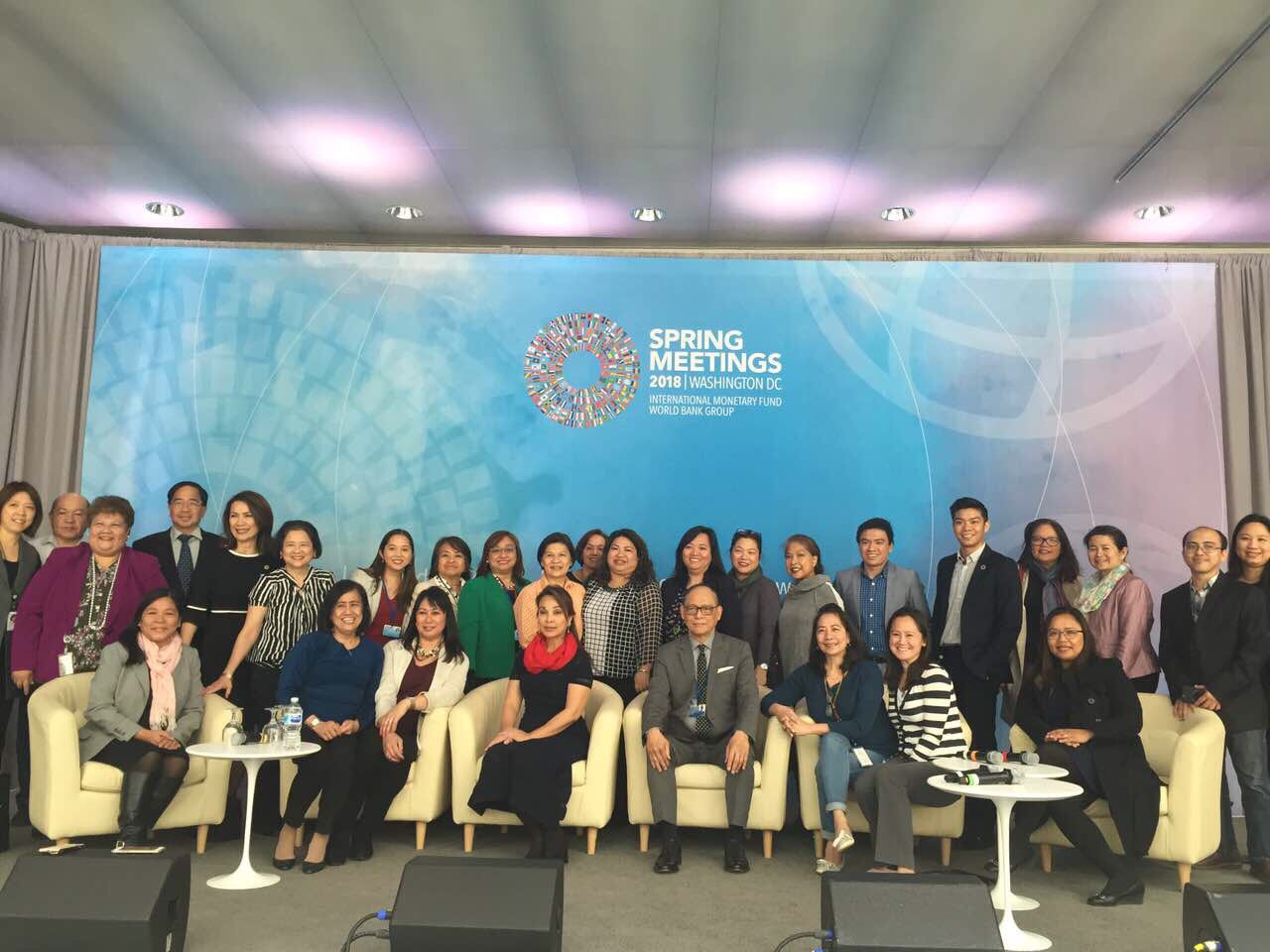
On the third day of the World Bank Group-International Monetary Fund (WBG-IMF) Spring Meetings, Budget Secretary Benjamin E. Diokno met with top officials of the World Bank to discuss best practices on social protection and community-driven development. The technical dialogue with World Bank Country Director Mara Warwick sought ways to better implement the flagship social protection programs of the Philippine government as well as explore possible avenues of cooperation in terms of technical assistance and financing.
Some of the anti-poverty programs discussed in the meeting include the Conditional Cash Transfer (CCT) Program and the Community-Driven Development (CDD) Program of the Department of Social Welfare and Development (DSWD). In the 2018 National Budget, the CCT Program has a budget of P89.4 billion ($1.8 billion) while the CDD Program has an allocation of P5.4 billion ($108 million).
In particular, the World Bank lauded the efforts of the Philippine government as its CCT program, dubbed the Pantawid Pamilyang Pilipino Program (4Ps), is now the world’s third-largest cash assistance program based on population coverage. The multilateral institution also noted the significant development impact of the 4Ps Programas it has led to improved living standards and better educational and health outcomes, among other positive spillover effects like stronger local economies for areas with many CCT-beneficiary households.
Besides the technical dialogue on social protection, Secretary Diokno also met with World Bank Vice President for East Asia and Pacific Victoria Kwakwa. The high-level bilateral meeting stressed the importance of continued cooperation and greater partnership between the World Bank and the Philippine government.
The World Bank is currently engaging the DBM through its Reimbursable Advisory Service (RAS) for Supporting Public Financial Management Reforms. To date, it has extended technical assistance and implementation support to key DBM reforms like the modernization of the government electronic procurement system, the Budget and Treasury Management System (BTMS), which is an integrated financial management information system, among other public sector initiatives.
(30)

